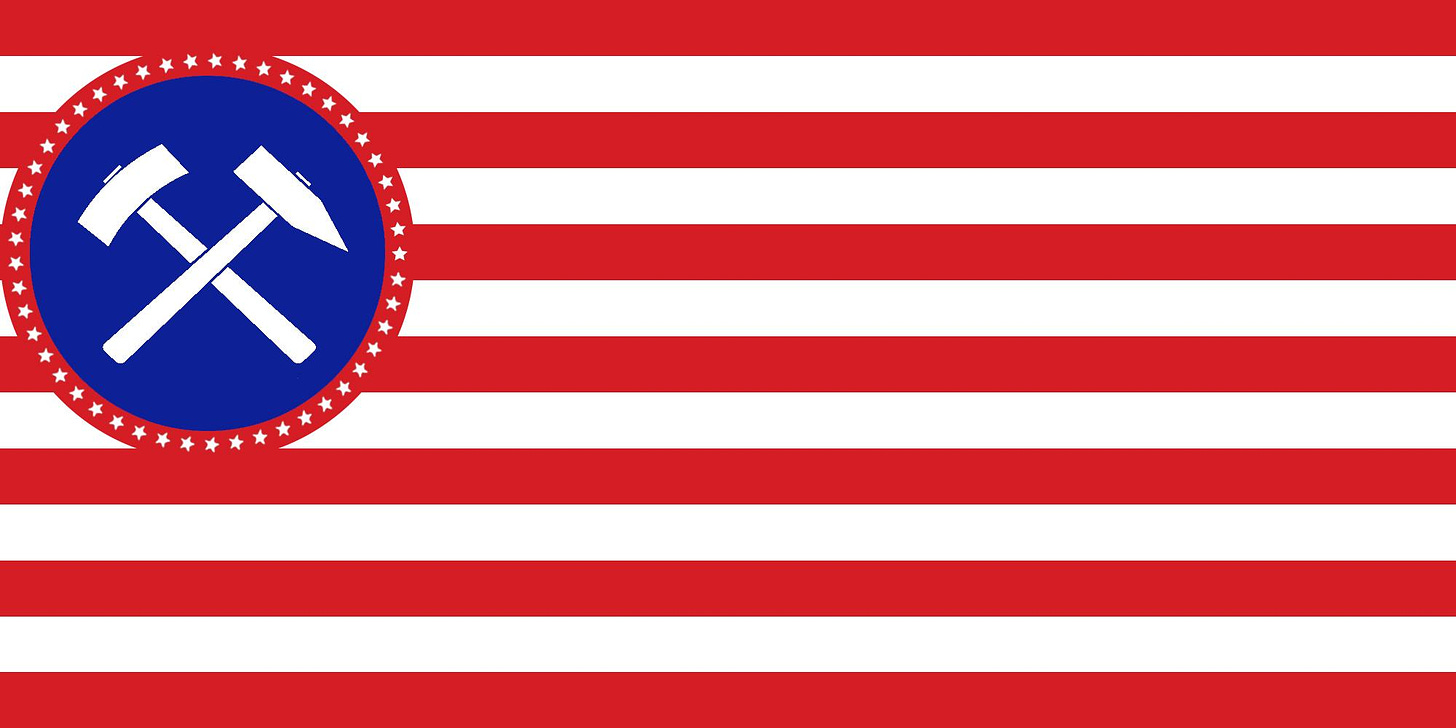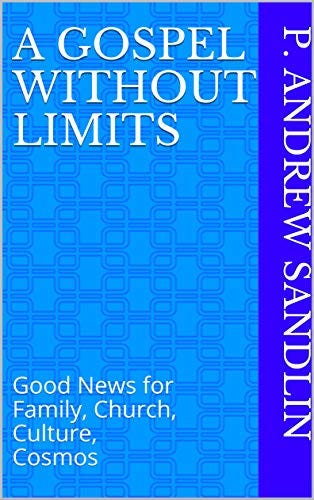A July 4 Worldview Clash
The founding institutions are not equipped to survive a secular, culturally Marxist society

Dear friends and supporters:
During no July 4 of my lifetime have the cultural stakes been as momentous as they are in 2020. The Leftist protests of the late 60s, motivated by the Vietnam War, by Martin Luther King’s colorblind social vision, by the rise of vocal feminism, and by the Sexual Revolution are unforgettable, even to those of us very young at the time.
These protests were driven largely by the notion that America was not living up to its founding principles. This explanation, in fact, was part of the original civil rights vision. The Declaration of Independence had declared that all men are created equal, but they were not all being treated equally, particularly if they were black and living in the American South.
Leftists at the time offered as a cure a consistent conformity to the founding ideals of America. Tom Hayden’s (in)famous “Port Huron Statement” (1962), hammered out by a group of disaffected collegians he’d assembled as the Students for a Democratic Society, was both secular and socialist. Their program, which they labeled the New Left, chided their allegedly self-satisfied, conformist liberal parents’ set not for embracing the vision of the American founding, but for not embracing it:
[W]e began to see complicated and disturbing paradoxes in our surrounding America. The declaration “all men are created equal...” rang hollow before the facts of Negro life in the South and the big cities of the North.
Not only did tarnish appear on our image of American virtue, not only did disillusion occur when the hypocrisy of American ideals was discovered, but we began to sense that what we had originally seen as the American Golden Age was actually the decline of an era.
This was a major premise of the old New Left.
What we might credibly call the newest New Left protests operate from an entirely different, and, in fact, opposite premise: The founding itself was immoral, venal, oppressive, corrupt, racist, sexist, and evil. In radical contrast to the left-wing protesters of the 60s, today’s protesters wish to abolish the vision of the founders in order to create the truly just society. This revolutionary nihilistic approach is not new, but it is becoming more widespread, and the newest New Left is committed to this inherently anti-American vision. The New York Times Magazine’s 1619 Project redefined the American founding as a capitalist racial oppression:
The 1619 Project is an ongoing initiative from The New York Times Magazine that began in August 2019, the 400th anniversary of the beginning of American slavery. It aims to reframe the country’s history by placing the consequences of slavery and the contributions of black Americans at the very center of our national narrative.
This redefinition constitutes not merely a modification or nuance but a radical reconfiguration of the very meaning of the United States.
These two conflicting ideologies underpin the two protests separated by over 50 years. They reflect two worldviews clashing before our eyes, and sometimes quite literally on the streets and at the foot of our most recognizable but toppled monuments.
The Free Society (Classical Liberalism)
Despite striking disagreements among themselves, the U.S. founders were all committed to a political philosophy today designated as Classical Liberalism, not to be confused with modern liberalism, which is almost its opposite.
Classical Liberalism was forged by the fusion of 17th and 18th century Protestantism on the one hand, and the conservative, British wing of the European (and not the atheistic French) Enlightenment on the other. A number of the brightest lights of this conservative Enlightenment, although not orthodox Christians, were committed to a divinely ordered universe and vested great confidence in universal human reason and experience to fashion a society. Like the orthodox Protestants, they believed that man was created in God’s image, and the best society was the one that respected that image.
The fixity of human nature
All classical liberals believed in the fixity of human nature. They didn’t believe that human nature was malleable, capable of transformation by the environment or society or the state. They believed that human nature as we now know it is defective. Christians call this sin, due to the Edenic fall. The deists, far less theologically accurate, nonetheless recognized the inherent defects in human nature. Trying to alter man’s nature is a fool’s errand.
Classical liberals, therefore, believed that the best political order possible under these less-than-ideal human conditions is one that limits the impact of this sin and human defect. Therefore, the founders installed institutional checks and balances, blind justice, the rule of law, representative government, written constitutions, and bills of rights.
Coercively limited political coercion
Classically liberal society is called the free society because checks on authority and coercion are everywhere. Classical liberalism was one of the first political philosophies in history that coercively limited political coercion. The state’s chief objectives are: (1) protecting the life, liberty, and property of its citizens, and (2) protecting its citizens from itself. This nearly unprecedented vision was probably never articulated better or more memorably than in Federalist 51:
But what is government itself, but the greatest of all reflections on human nature? If men were angels, no government would be necessary. If angels were to govern men, neither external nor internal controls on government would be necessary. In framing a government which is to be administered by men over men, the great difficulty lies in this: you must first enable the government to control the governed; and in the next place oblige it to control itself.
The founders did not believe that the free society could evolve into the perfectly virtuous or just society, which is an impossibility for any political philosophy. In fact, precisely because classical liberalism fosters a free society, it is also the imperfect society. Why? Because when people are free within the bounds of God’s broad moral law, their natural sinfulness, differences, and proclivities will be manifested. Free societies do not produce inequalities; they only provide a framework for the display of those inherent inequalities. The free society cannot be anything other than anti-egalitarian.
This is the most fitting segue to the prominent alternative political philosophy (and worldview).
(continued below)

Get the e-book here.
The Egalitarian Society (Cultural Marxism)
I’ve written a great deal about Cultural Marxism, and I won’t rehearse that explanation here, except to make one important point.
Just as Classical Marxism (think of the old Soviet Union and today’s North Korea) could not have emerged apart from the free (and particularly the economically free) society it combatted, so Cultural Marxism would never have been born apart from the classically liberal society and its widespread exercise of liberty. While Classical Liberalism sees man’s sinful nature as the foundational factor to take into account in fashioning society, Classical Marxism saw the consequences of free society as the problem itself. Where Classical Liberalism offered the great solution, Classical Marxism saw a great problem.
In a free society, some people are richer than others. Some are more accomplished because they are smarter. Some have a physical constitution to allow them to work harder, and in many cases generate greater income. Some businesses are successful and some go bust. Some people gain social approval because of their appearance, elocution, and personality. Others are disapproved for the same reasons. Some are wrongly disapproved: for example, for their skin color. Christians rightly disapprove of adulterers, abortionists, homosexuals, and pornographers. The variations in people — and therefore social responses to them — are nearly endless.
Egalitarian-inspired political coercion
It is these unequal outcomes that Cultural Marxists deplore. Classical liberals value a free society one of whose inevitable byproducts is these inequalities. They’re willing to endure these inequalities (inevitable anyway) to protect against political coercion. The Cultural Marxists, conversely, wish to employ political coercion in order to eliminate or mitigate these inequalities.
If Classical Liberalism creates the free society, Cultural Marxism creates the egalitarian society. Classical liberalism believes in equality too, but defines it as equality of condition, or process. Everyone should be treated the same under the law.
For Classical Marxists, this is the Achilles’ Heel of the free society. If everyone is treated the same under the law, people’s life outcomes will be different from other people’s, sometimes radically different. This is unjust.
Unlike Classical Liberals, Cultural Marxists believe that man’s nature is fluid and malleable. They follow the French thinker Jean-Jacques Rousseau in positing that man is born innocent and virtuous, but corrupted by his environment. This means that if we are to change human nature, we must change the environment.
Liberty-loving oppressors?
It also means that Cultural Marxists see social inequalities as a result of bad, venal intentions. Its perpetrators are the oppressors. Males, whites, Christians, heterosexuals, and capitalists oppress other, differing human classifications, and if there is to be the truly just society, they must be deprived of their ability to oppress. This means using the state to crack down on their political liberty. This is where the notions of toxic masculinity, white privilege, Christophobia, homophobia, sensitivity sessions, social justice warriors, Black Lives Matter, and the entire litany of revolutionary monikers comes from.
The egalitarian society must replace the free society in order for justice to prevail. And because the founding of the United States molded free society, the founding itself must be debunked and erased. It is insufficient to topple the monuments of Confederate figures like Robert E Lee. The peaceful, lawful removal of his statue could be plausibly argued to conform to Classical Liberalism, since slavery flatly contradicts the ideals of the founding.
But the removal or effacement of statues by Abraham Lincoln, Ulysses S. Grant, and Teddy Roosevelt strike not at hypocritical practices of otherwise philosophically virtuous founders, but at the founding philosophy itself.
According to the Cultural Marxists, it’s the idea of the United States that actually should be toppled.
It’s not hard to recognize why these two worldviews are irreconcilable. What one considers the solution to the problem, the other considers the problem itself. Classical Liberalism posits that significant political coercion is a great hazard to humanity. Cultural Marxism holds that political coercion is necessary in order to foster the greatest human society: egalitarian.
The institutions of the nation are simply not structured to survive when a majority of the politicians and populace do not espouse that founding philosophy. In short, the nation was built for classically liberal people. Our current politics is largely a reflection of the loss of a particular kind of person — the classical liberal.
Conclusion
The culture war confronting us this July 4, therefore, isn’t merely what the United States will look like in the future. It’s whether there will be a United States in any conventional sense at all.
Cultural Marxism deplores and wishes to replace the very institutional backbone of our free society: free speech, religious liberty, free markets, checks and balances, an independent judiciary, evenhanded justice, and social colorblindness. (See my “The Marxism in the Mayhem.”) The victory of Cultural Marxism is impossible without the defeat of the United States as historically conceived and practiced. The decision before us is that stark.
The perpetuation of the United States as an idea will require widespread prayer, vigorous intellectual defense, cultivated historical awareness, and unshakable political courage.
The forces of Cultural Marxism are animated by a nihilistic revolutionary fervor for what they consider the egalitarian society. We must match it by an equally fervid commitment to the free society.
Only comprehensive worldviews can vanquish other comprehensive worldviews.
As unpleasant as the task might sound, free societies require defense, not just from foreign military enemies, but also from domestic ideological enemies.
Freedom-lovers must be prepared for a rigorous battle on both fronts if we hope to bequeath a free society to our children and grandchildren.
Will you consider a tax-deductible donation to CCL via PayPal or Venmo? God uses you to keep us going — and expanding.
Personal
I spend a lot of time on the road lecturing and preaching for CCL, and my wife Sharon almost always accompanies me. Here are two friends from Oklahoma, Bob Linn (left), president of the Oklahoma City Political Action Committee, and Dr. Mike Biggs (right), pastor of Christ the King Presbyterian Church in Norman. Both are dear friends and rock-ribbed Christian worldview conservatives.

Since March of this year, Coronavirus and Cultural Marxism have separated the wheat from the chaff in churches, Christian ministries, and Christian leaders. Proponents of statist ideology or ideological wokeness “in the name of Jesus” have visibly identified themselves as spiritually unreliable, and their bold, thoughtful, uncompromising colleagues have evidenced themselves as dependable leaders for the days ahead.
I intend to persist in leading CCL in precisely this vigorous Faith. Thank you for helping me do this.
Yours for the free society,

Founder & President
Center for Cultural Leadership
More great stuff:
My Amazon author page (print and digital) is here.
You can find my sermons and lectures at my YouTube channel.
Sign up to get my blog updates here.
Here’s my Twitter feed.
Here’s my Parler feed.
If you want to get the free exclusive hard copy publication Christian Culture, please send me a Facebook private message.
The CCL phone number is 831-420-7230.
Finally, the address is:
Center for Cultural Leadership
P.O Box 100
Coulterville, CA 95311
List of Coronavirus-related posts and podcasts:
“What the COVID-19 Drama Has Revealed About Our Institutional Character”
COVID-19 and Legality: An Interview with Jeffery J. Ventrella
COVID-19 and Economics: An Interview with David L. Bahnsen
COVID-19 and Theology: An Interview with Brian G. Mattson
“COVID-19 and Our Crisis of Liberty”
“Thinking Christianly During Covid”
“COVID-19, Politics, Church, and Culture”
(Dr. Ardel Caneday and I address vital questions. This was a succinct, wide-ranging conversation discussing everything from the interpretation of Romans 13, radical 2-kingdom theology, the nature of the church, whether the church should cancel public worship, whether the civil magistrate is bound to God’s law, the Founders’ view of human nature, the diabolical basis of coronavirus fear, and much more. The password is: 1j$@^=S#)



